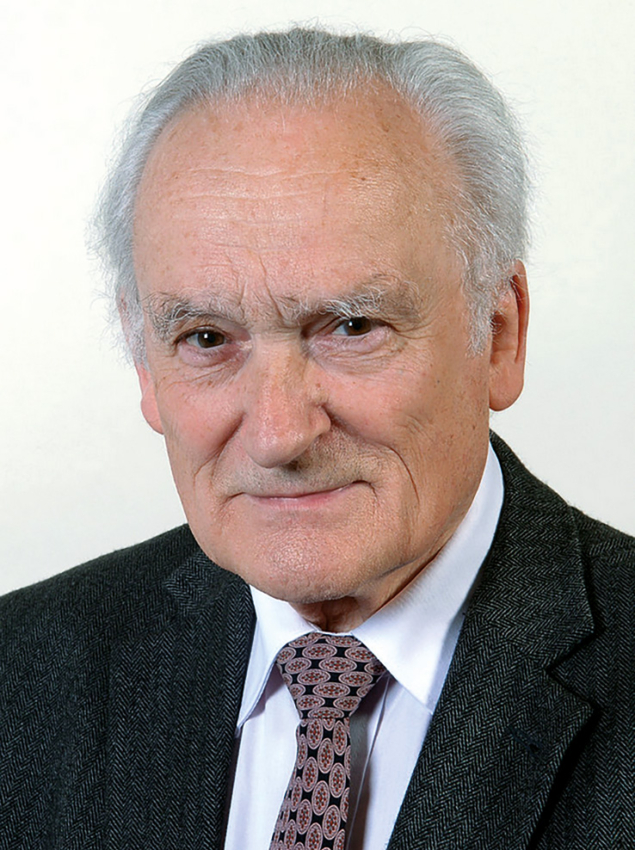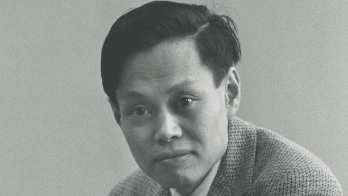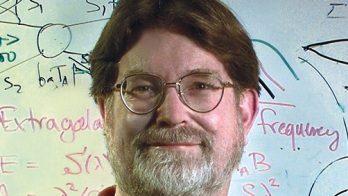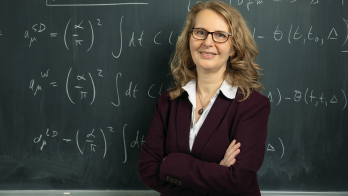
Renowned experimental physicist and co-initiator of relativistic heavy-ion physics, Rudolf Bock, passed away on 9 April 2024 aged 96.
Rudolf Bock was born in Mannheim, Germany in May 1927 and obtained his diploma in physics from the University of Heidelberg in 1954. He conducted his doctoral thesis on deuteron-induced nuclear reactions at the cyclotron of the Max Planck Institute for Medical Research in Heidelberg and received his doctorate from Heidelberg University in 1958. He then investigated nuclear reactions at the newly founded MPI for Nuclear Physics (MPIK) at the tandem accelerators there, initially with light ions and from 1963 with heavier ions.
In 1967 he was appointed full professor at the University of Marburg and was involved in the development of a joint accelerator project for heavy-ion research, ultimately leading to the UNILAC accelerator project. On 17 December 1969, the research centre GSI (Gesellschaft für Schwerionenforschung) was founded in Darmstadt–Wixhausen. As one of its founding fathers and subsequently as a long-standing member of the GSI board of directors, Rudolf Bock played a decisive role in the development of nuclear physics with heavy ions. At the same time, he maintained his contacts with Heidelberg as an honorary professor and as an external scientific member of the MPIK. In 2000 he was awarded an honorary doctorate from Goethe University Frankfurt.
Research with relativistic heavy-ion beams soon led to great successes. From 1974 Rudolf Bock established a working group at GSI under the leadership of Hans Gutbrod and Reinhard Stock, who set up and successfully carried out two major experiments at the Berkeley Bevalac accelerator. These resulted in the discovery of compressed, hot nuclear matter with hydrodynamic flow behaviour and thus formed the basis for his later experiments on quark–gluon plasma at CERN.
From the mid-1980s, the heavy-ion synchrotron SIS18 was set up at GSI under the leadership of director Paul Kienle. Thanks to Rudolf Bock’s guidance and in cooperation with surrounding universities, three new experiments (FOPI, KAOS and TAPS) were created, which focused on the formation of compressed nuclear matter as well as on hadron production and in particular the formation of light atomic nuclei. Around the same time, he was working on plans for experiments at much higher energies, which could ultimately only be realised at the CERN
SPS accelerator, with decisive contributions from GSI and LBL Berkeley. This led to the development of today’s global programme in ultra-relativistic nuclear–nuclear collisions, which has been pursued since the 1990s at the AGS and SPS, from 2000 with four experiments at RHIC and, since 2010, has been led by ALICE at the LHC at the highest energies.
The cooperation between GSI and LBL Berkeley was not only the beginning of relativistic heavy-ion physics. Supported by Hermann Grunder, then head of the LBL accelerator department, Rudolf Bock started the inertial confinement fusion programme in Germany. He also laid an important foundation for ion-beam therapy by supporting the secondment of Gerhard Kraft from GSI to the cancer-therapy programme at LBL. After his retirement in December 1995, Rudolf Bock maintained his scientific activities at GSI, his primary interest being the development of experiments on plasma physics and inertial-confinement fusion with high-intensity ion and laser beams.
Throughout the course of his scientific career, Rudolf Bock established numerous new research collaborations with institutes in Germany and abroad. As he himself had taken part in the Second World War and had spent several years as a prisoner of war in Russia, the idea of international understanding and peacekeeping was an important concern for him. As early as 1969 he invited many Russian scientists to the nuclear-physics conference at MPIK, and from the 1970s he promoted many collaborations between GSI and Russian institutes. He also pushed for Russia to become the largest member state in the GSI/FAIR project. The Russian invasion of Ukraine in February 2022 was therefore a great disappointment for him and for all of us.
Rudolf Bock was regularly present at GSI until his last days and continued to take an interest in current research and developments on campus. His advice and foresight will be sorely missed.







